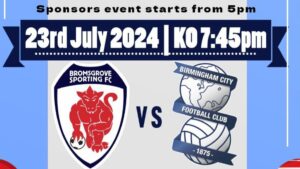Our sports physiotherapist Gavin Blackwell has written the following piece, looking at how his role has changed through the years…
“Previously, it was always clinical examination or X-ray. Nowadays, it’s clinical, but over-reliant on MRI, Ultrasound and CT Scanning. Elite level players rarely rely on clinical opinion alone and will expect or even demand a scan – even for the most innocuous issue.
The one disappointment I have is that players who come into the game now at a young age probably have undergone more scans by their mid-20s than some in the past did over a whole career, stretching to their mid-30s. Players now often think ‘When am I getting a scan?’ before we have even assessed it and I think that is a shame. Things have moved on in a good way but I think it’s gone a little bit too far the other way. It’s not the players’ fault – it’s just how things are.
Pitches these days are amazing. We can all remember when, by November, most were black diamonds with little green bits at the corner flags. The goalmouth was like a ploughed field, and players were covered in mud at half-time. Now, most pitches are still green and smooth at the end of the season and the game is better for it, with players able to show their skills.
Artificial pitches have improved massively from the days of sand-based surfaces. It is commonplace now for games to be played on 3G pitches across the non-league pyramid.
There used to be only one player substitute per match, so my matchday was more difficult in terms of decision-making on injuries, compared with the three subs being available now. And everyone, including the manager, would be seated in the dug-out. There was none of this standing up in the technical area that is the norm today.
Playing squads have got bigger. We now usually have 16 to 18 players, even 20. It used to be 13 to 15. My intuition for when a player is fit or not, confident or not, has always remained.
We used to have to cut tie-ups before games. Now it’s tape and more tape and they have to be the same colour as the socks.
We used to run on with what was often referred to as the ‘magic sponge’. With the medical bag that, on occasion, included goods worth a fortune such as wallets, watches, and jewellery. People watching the game didn’t realise the amount of valuables in the bag when I ran onto the pitch. Often dressing rooms weren’t locked.
When I started, the sponge was in the material of a football bladder and then we had proper sponge bags by the likes of Adidas and Umbro. These days, our buckets and sponges are restricted to use on the car.
The physio is part of the backroom ‘team’ along with the assistant manager, coach and others who make up the machinery who advise the manager. We have input into their day-to-day quest to field their strongest team, twice a week, for something like a 46-game season.
The equation of fielding a team from 16 to 20 squad members is difficult and one that doesn’t work a great deal of the time. There are always at least two long-term injuries and a string of ‘running repairs’ who will play but may have to be nursed from training until the last minute.
Add to that suspensions, simple illness, and domestic unpredictability, and you can see a great deal of juggling goes on from day to day, week to week.
Against this background, the physiotherapist must make clinical judgement in the first place and then understand the manager’s dilemma over keeping the show on the road, with pragmatic compromises.
You need to be part of the players, but also apart from them. Part of the management but not making judgement. You sit in the middle of the training ground with players on one side and coaches and managers on the other – you are the go between, the bridge between them. If you are too close to the manager, the players won’t trust you. If you go too close to the players, the manager definitely won’t trust you and you could be out of work.
The biggest part of the job is man-management. Forget the ultrasound rubbish, your job as a physio is to give the manager as many fit players as possible for matches. I might tell him he needs to leave a player another week or he needs more strength work, more time on the grass or more rehab. The importance of the game is also a factor.
My first gaffer, Ron Smart, met me and said: ‘Let me know who’s fit on a Thursday evening after training. Let me know any issues. Unless there is a very good reason, I won’t play a player who you have told me is not fit.’ And he was true to his word.
There might be a situation when a manager says he may have to take a chance on a player. It’s not a yes or no – it’s a consensus. You put the facts before them and might say that a player will struggle to play or last the whole game. And you add the reminder that a risk might lead to someone then being out for three or four weeks. They usually listen and follow your advice but sometimes they don’t. It’s important to let the manager have the facts as you see them, not what he wants to hear, and give your views as advice upon which he may act upon or not.
It could be the manager might say, ‘I think he can play’ and you say, ‘well look, you know I don’t think he can play’. They might say that they have asked him and he said he was okay. Your job then isn’t to say that if they decide to play him that you will walk out. That’s not your job. Your job is to just to tell the manager what the risks are and make sure they are aware of them. Everyone is aware of what those risks are because you’re always pushing boundaries and you have to be honest – that’s the main thing. It’s important to understand the balance between always putting a player’s welfare first and not caution for the sake of caution. The player always has to come first.
At the end of the day, as I mentioned earlier, it’s not a yes or no, it’s a consensus. As a physio, you can give the manager all the information but they are the ones who put names on teamsheets. It’s their decision – you win together and lose together.
The manager has a job to win football matches. Our job is to look after the health and safety of the players. These are two different jobs.
Injuries are a spin-off from the fact a club is in the business of playing highly competitive matches and hopefully winning more often than not.
However, there are some essential aspects that remain constant. The win metric triumphs all others. The pressure to win is key and we are all ultimately held to account over results. And results are what many decisions are ultimately made on. Win all day. You can rectify injuries, but dropped points don’t get refunded. Big calls are so important.
It’s always a difficult 24 hours after a defeat for the physio. I can’t imagine what it’s like for the manager and players. The reverse is the case with a win. It’s a great 12 or so hours, then you go again because you’re always preparing for the next game.”

















